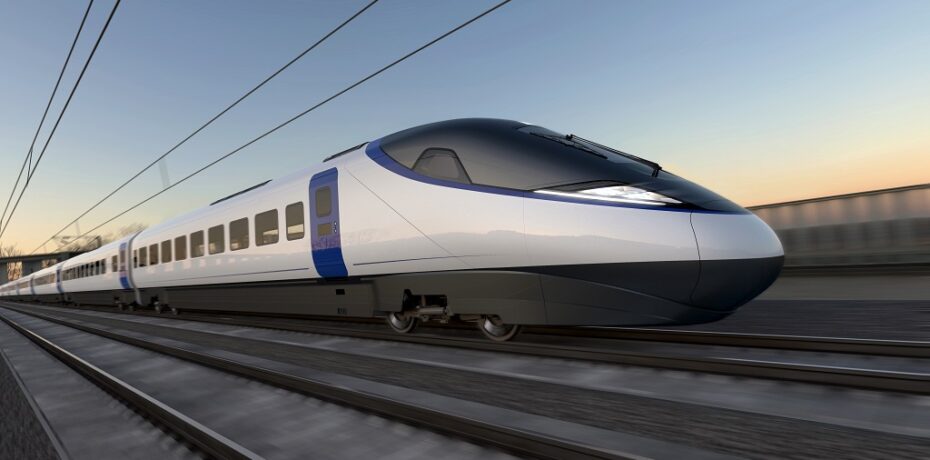The Subplot
The Subplot | HS2 vibes, Northern NIMBYs, film studios
Welcome to The Subplot, your regular slice of commentary on the business and property market from across the North of England and North Wales.
THIS WEEK
- Feel the vibes: why HS2 may not be on the brink of revival
- Elevator pitch: your weekly rundown of what is going up, and what is heading the other way
VIBES MAKE THE WHEELS GO ROUND
Choo choo chatter
Is this week’s talk of a revival of the HS2 rail line under Keir Starmer’s Labour Party a real prospect or upbeat pre-election bants and best ignored?
When, in October 2023, Prime Minister Rishi Sunak announced the death of the HS2 line north of Birmingham, he ordered the sell-off of the land and property needed for the Northern legs of the high speed network. This looked like salting-the-earth, making it impossible to revive the project. But nothing has been sold. According to The Guardian that makes a revival of HS2 possible. Does it really?
Not so fast
First things first. Selling off HS2 property assets requires the government to take the legal steps necessary to remove its protection. This hasn’t yet happened (although, apparently, it’s due soon). So no surprise at all that nothing has been sold – it’s not currently possible to sell it. Supposing the legal protection is removed, it will take time to package and market.
Casino thinking
Much of it is not going to be an easy sell because (checks notes) a railway might one day go through it. Anything that passes the planning blight test will be hard to sell for another reason, which is nobody quite knows what the Labour Party would do if they take government later this year. Would they stop sales mid-transaction, or insist on renegotiation, or perhaps compulsorily repurchase anything sold? Only casino-minded purchasers are going to bid for land with those kinds of risks attached. Result, no land sales.
Steve says ‘yes’, presumably
So the lack of land sales doesn’t imply anything much about the future of HS2. However, there are two straws in the wind worth watching, one big and one small. The smaller one first. Liverpool City Region’s Mayor Steve Rotheram has indicated he’ll stand for re-election in May but jungle drums say Rotheram’s political journey may not end there. Rotherham is tipped for a ministerial job if Labour forms the next government. Transport would be the obvious brief.
Supposing any of that comes to pass, might it help breathe some urgency into HS2 or the various private sector replacement projects now being mulled by regional metro mayors? Just before Christmas, Andy Burnham and Street commissioned an inquiry led by infrastructure expert Sir David Higgins and Arup to look at ways to enhance connectivity between Birmingham and Manchester.
As usual, money
The bigger straw in the wind – more a log in the wind – is money. Labour has been cautious about committing to future spending. This allergy is so powerful even the long-touted £28bn green economic transformation plan is being repriced. Given this hesitancy, why would Labour commit as much or more to HS2? Remember, by the time HS2 was chopped costs had risen above £25bn a year.
On the other hand, most of that spending is already committed (it’s the London to Birmingham phase). Birmingham to Crewe and Manchester wouldn’t start to be seriously expensive for another five years – which means after another general election. Either way, it’s hard to see why a Labour government with a long list of priorities should put HS2 at the top of its spending commitment list.
It’s all vibes
The best anyone can say is that the problems and trade-offs that caused PM Sunak to junk HS2 won’t be very different for PM Starmer. Capacity issues on the West Coast Main Line will get worse, yet budgets are super tight. If a private sector solution (with mayoral backing) can make some headway, Labour might smile on it. But governments of any colour will want to be sure that if a private scheme goes bust, residual liabilities don’t land back on the Treasury.
For now, the North’s transport infrastructure needs will have to be met without the comfort blanket provided by HS2, whatever vibes politicians claim to feel.
Join the conversation with policymakers, planners and the property industry at Place North’s Transport and Infrastructure event on 25 January.
 ELEVATOR PITCH
ELEVATOR PITCH
Going up or going down? This week’s movers
In the elevator this week: the risk that cash-strapped councils become averse to controversial planning decisions might be growing. Meanwhile, the latest star-struck plans for Northern studio space are launched. Doors closing.
 Nimby judicial reviews
Nimby judicial reviews
Are controversial planning applications about to enter a new hell zone at the hands of heritage groups and local campaigners? There are some who think the cash crisis now afflicting local councils could mean just that (see Subplot, 4 January).
The logic goes like this: financially stretched councils are unable to afford the counsel’s opinions, or the judicial reviews, necessary to fend off objections to controversial approvals. A conspicuous example is said to be (more or less bankrupt) Birmingham City Council’s decision to reconsider approval of CEG’s plans to demolish a chunk of the brutalist city centre at Smallbrook, and replace it with 1,750 apartments. The rethink follows a loud campaign, with judicial review threats, intended to save the existing 1960s block.
Jeremy Hinds leads the Northern planning team at Savills. He reckons the council aren’t so much backing down as armour-plating their original decision. More generally, Hinds doesn’t think councils will be more or less inclined to defend themselves in court. “On balance, the risk is to an applicant claiming judicial review,” he says.
Decisions on Smallbrook are due soon, and the outcome will be closely watched. Meantime, if there’s a problem for planning caused by council budgets, it’s that lack of money means the planning system gets more random and harder to predict.
Harry Spawton is a planning partner in Gerald Eve’s Manchester office. He says: “The problem is a lack of senior staff, so controversial cases go to more junior staff who can maybe be swayed in a way that senior people can’t. That means staff are not so comfortable or so confident, and that makes everything more unpredictable.”
 Hollywood Hull
Hollywood Hull
Hollywood comes to Hull? Maybe it will, thanks to the latest proposal for around 20,000 sq ft of sound stage on a site at Priory Park. The project is the creation of local independent producer Northern Film.
Hull is not alone. CBRE reckons there’s about 11m sq ft in the UK studio development pipeline, and the list of Northern projects is growing. Two months ago plans for something much larger landed in Sunderland. Fullwell Cain – a joint venture involving Cain International – revealed plans for 1.68m sq ft of studio spaces, including 20 sound stages. Crown Works Studios will be a big coup for Wearside.
Trouble is there’s a long history of upbeat announcements about North of England studio developments, and much less evidence of actual development on anything like the same scale (Subplot, 1 June 2023).
If you follow the tortured economics of the film and TV business you’ll know that consolidation is taking place, with Netflix assuming an ever-more dominant position and others, like Warner Bros. Discovery, looking for new strategies. It’s not clear that’s going to mean more film and TV production – although it probably means there’s pressure to do it cheaper. That could be what kicks some of the long list of Northern film production plans into life.
Get in touch with David Thame: david.thame@placenorth.co.uk





Labour has an abysmal record in government of investing outside the South East. Physician heal thyself springs to mind, when they criticise the Tories. Remember that they were the party which cancelled the Big Bang on Manchester’s Metrolink, and totally abandoned Metrolinks for Merseyside and West Yorkshire. Rachel Reeves, is likely to blame the Tories for the first four years, because she has no money. One thing you can guarantee is that whoever is in power, HS2 will reach Euston, and this will become a commuter line for those living North of London, with Birmingham tagged on as an irrelevance. Sunak should hold his head in shame,for how he has treated the North. I just hope that we get more Devolution because it is clear that these people will continue to treat us as second class citizens in our country, whoever wins.
By Elephant
Real concern that the cancellation of HS2 and its end in Birmingham seems to have actually reduced the already poor services from Manchester and Liverpool, never mind the problems caused to freight movement especially from Liverpool dock
By George
The best future for HS2 is a line to Glasgow and that Warrington becomes a hub, then NPR can then provide superfast cross-links to Manchester, Liverpool, Leeds etc.
High-Speed rail works in Europe because of the long lines from the likes of Spain and up through France making things more fianacially justifiable.
By Anonymous
Anonymous at 11.25 is spot on. Excellent idea. Glasgow should have been the West Coast route anyway and NPR should go to Edinburgh via Newcastle from Leeds.
By Elephant